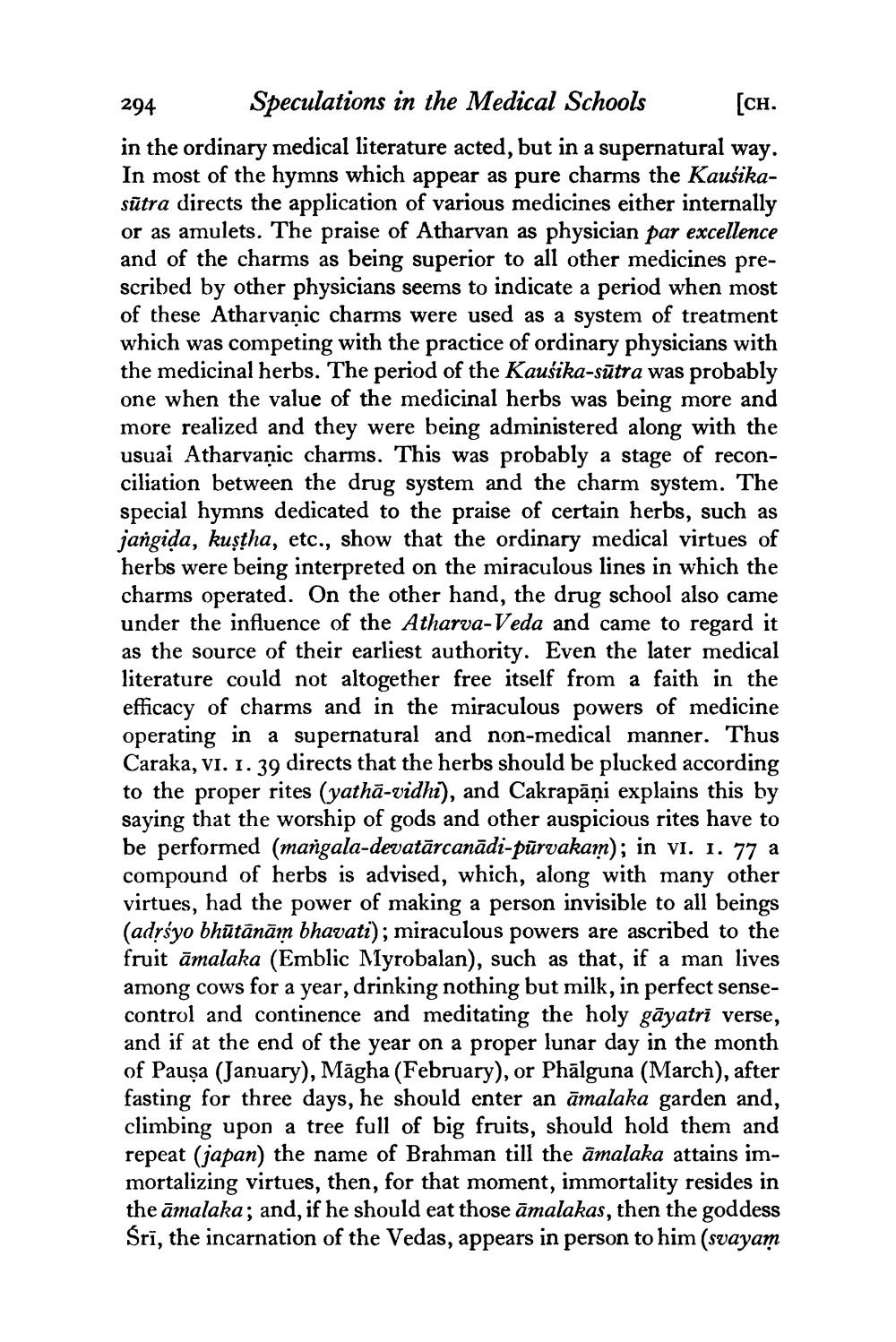________________
294
Speculations in the Medical Schools
[CH.
in the ordinary medical literature acted, but in a supernatural way. In most of the hymns which appear as pure charms the Kausikasūtra directs the application of various medicines either internally or as amulets. The praise of Atharvan as physician par excellence and of the charms as being superior to all other medicines prescribed by other physicians seems to indicate a period when most of these Atharvanic charms were used as a system of treatment which was competing with the practice of ordinary physicians with the medicinal herbs. The period of the Kausika-sūtra was probably one when the value of the medicinal herbs was being more and more realized and they were being administered along with the usual Atharvanic charms. This was probably a stage of reconciliation between the drug system and the charm system. The special hymns dedicated to the praise of certain herbs, such as jangida, kuştha, etc., show that the ordinary medical virtues of herbs were being interpreted on the miraculous lines in which the charms operated. On the other hand, the drug school also came under the influence of the Atharva-Veda and came to regard it as the source of their earliest authority. Even the later medical literature could not altogether free itself from a faith in the efficacy of charms and in the miraculous powers of medicine operating in a supernatural and non-medical manner. Thus Caraka, VI. 1. 39 directs that the herbs should be plucked according to the proper rites (yatha-vidhi), and Cakrapāņi explains this by saying that the worship of gods and other auspicious rites have to be performed (mangala-devatārcanādi-pūrvakam); in VI. 1. 77 a compound of herbs is advised, which, along with many other virtues, had the power of making a person invisible to all beings (adṛśyo bhūtānām bhavati); miraculous powers are ascribed to the fruit amalaka (Emblic Myrobalan), such as that, if a man lives among cows for a year, drinking nothing but milk, in perfect sensecontrol and continence and meditating the holy gayatri verse, and if at the end of the year on a proper lunar day in the month of Pausa (January), Magha (February), or Phalguna (March), after fasting for three days, he should enter an amalaka garden and, climbing upon a tree full of big fruits, should hold them and repeat (japan) the name of Brahman till the amalaka attains immortalizing virtues, then, for that moment, immortality resides in the amalaka; and, if he should eat those āmalakas, then the goddess Śrī, the incarnation of the Vedas, appears in person to him (svayam




